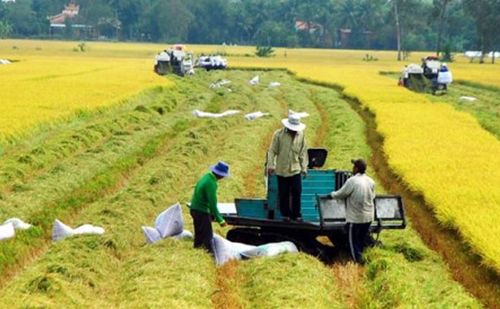
Vietnam has adopted a series of measures affecting the import and export of agricultural products to support and protect its agriculture, including price based tools (import and export tariffs), quantitative restrictions (export ban, import quota), management requirements (licensing and quarantine and inspection arrangements), and multi bilateral trade relations. International trade contract and global agricultural cooperation promote Vietnamese agricultural trade. Vietnam's accession to the association of Southeast Asian Nations (ASEAN) in 1995 and the accession to the World Trade Organization (WTO) in 2007 restrict Vietnam's support of agriculture through foreign trade policies. At present, Vietnam's foreign trade measures to support the protection of agriculture include: 1) import tariff. Vietnam's MFN agricultural tariff fell from 25% in 2000 to 16% in 2013. Although the degree of tariff protection for agricultural production has decreased, it is still higher than that of non-agricultural products (9.5%). In particular, the tariff level is higher on some commodities that need to be protected (such as sugarcane, pork and some fruit and vegetable products). ② Tariff quota. Vietnam implements tariff quotas on sugar, tobacco, eggs and salt. The annual import quota is determined by the Ministry of industry and Commerce of Vietnam, and the tariff rate outside the quota is determined by the Ministry of finance of Vietnam. ③ Food safety and quarantine measures. Since China's entry into WTO, Vietnam has implemented different SPS measures on meat, fresh fruits and vegetables imported from different countries. Although Vietnam has agreed to maintain the same effect as foreign food safety measures, it has not fully adopted international standards. Vietnam, for example, has taken more stringent protective measures to limit imports of BSE beef. ④ Export promotion. In recent years, the Vietnamese government has introduced many agricultural policies to facilitate market development and trade promotion. Since 2011, the government has provided loan assistance to exporters of tea, pepper, cashew nuts, finished fruits and vegetables, sugar, meat, poultry, coffee, seafood, etc. In addition, Vietnam also implemented VAT export tax rebate on coffee and other agricultural products. Since January 1, 2014, the government has borne 50% of the advertising expenses of agricultural exporters' foreign media, and 50% of the cost of obtaining market information and other services from national promotion agencies.
转发0评论0